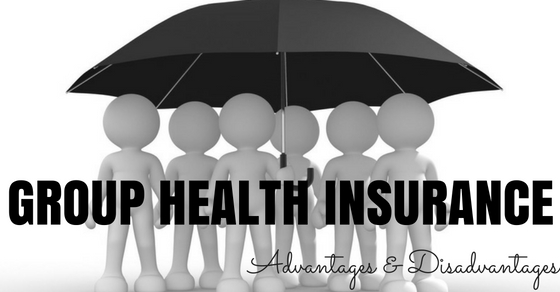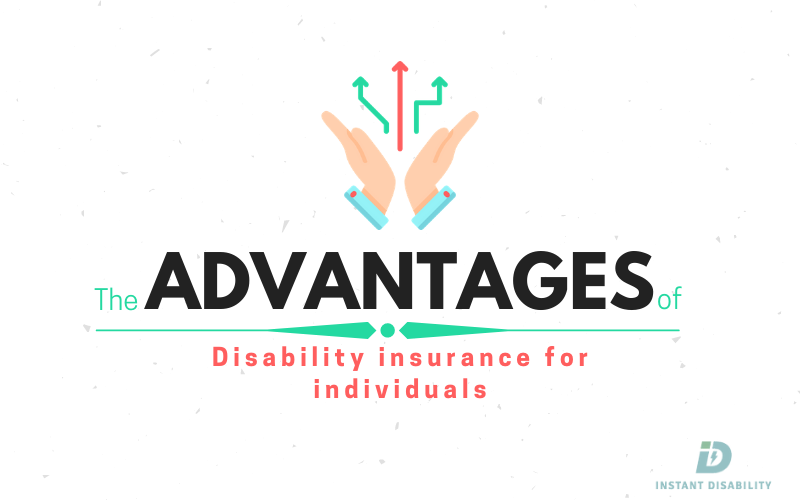Advertisement

Kelly Walker Jan 19, 2025
What Is Vendor Financing and How Does It Work
77274

Kelly Walker Aug 29, 2024
Top Life Insurance Companies for Children
26074

Kelly Walker Dec 08, 2024
What Are Grantor Trust Rules?
87826

Kelly Walker Dec 10, 2024
Difference Between 15-Year and 30-Year Mortgage
4423
Advertisement
What Is Group and Individual Disability Insurance?
Dec 01, 2024 By Kelly Walker
Understanding the financial risks associated with an unforeseen disability can be daunting. Even for those of us who try to do our best and prepare for the unexpected, becoming disabled can cause unwelcome lifestyle changes and financial hardship.
Fortunately, plans are available that protect from loss of income due to a disability: Group Disability Insurance (GDI) and Individual Disability Income Insurance (IDI). In this blog post, we’ll explain these two types of insurance, how they differ, and why having both is generally recommended.
Overview of Group and Individual Disability Insurance
Group Disability Insurance and Individual Disability Income Insurance are two types of policies designed to protect against the financial risks associated with unforeseen disability.
Without these plans, individuals may find themselves unable to work due to a disability and without an income source to support their lifestyle.
Advantages of Group Disability Insurance
Group disability insurance, or GDI, is a policy issued to a group of people, such as company employees. This type of insurance protects the insured if they become disabled and unable to work.
GDI policies provide several advantages that can help financially protect those who become disabled:
- Lower costs: Because group disability insurance is secured through an employer, the premiums are typically lower than individual coverage.
- Job protection: GDI policies often provide job protection if you become disabled and unable to work, allowing you to keep your job without losing pay or benefits.
- Comprehensive coverage: GDI policies generally cover a wide range of disabilities.
- Lump sum benefits: GDI policies typically pay out a lump sum benefit that can be used to cover medical expenses and other related costs.
- Tax benefits: Depending on the plan, part of the premiums paid for GDI may be tax deductible.
Disadvantages of Group Disability Insurance
Group disability insurance policies are often offered by employers and usually cover a percentage of your salary if you become disabled. This can be beneficial in providing some income protection, but there are also a few drawbacks to consider:
- The coverage may be limited – Many group disability plans only provide a partial benefit or maximum amount of income replacement.
- The cost can be high – Depending on the type of policy, group disability insurance may be more expensive than individual policies due to larger risk pools and administrative costs.
- Coverage terminates when employment ends – Group disability coverage typically ceases if you leave your job or are laid off.
- The definition of “disabled” may not be as comprehensive. In some cases, a group policy may define “disabled” more narrowly than an individual policy might and could require a longer period of disability before benefits are paid out.
- Benefits may be taxable – Depending on the policy, group disability benefits may be taxable.
Individual disability income insurance provides more comprehensive coverage and can help protect your income in the event of a disability. It’s important to understand how these policies differ so you can decide which type of insurance is right for you.
Advantages of Individual Disability Insurance
Individual disability insurance (IDI) is a type of policy designed to provide financial protection if you become disabled and are unable to work. Depending on your chosen policy, it can replace up to 70% of your salary for an extended period.
Here are the advantages of having individual disability insurance:
- IDI is tailored to your individual needs. With IDI, you can select a policy that offers the coverage you need and pay for only what you're comfortable with. Your insurance provider can advise you on the best coverage option for your unique situation.
- You own it, so you keep it. Unlike group disability insurance, individual disability insurance is owned by you. If you change jobs or get laid off, your coverage stays with you.
- Your premiums won’t increase over time. IDI typically has a stable premium rate over its duration and can even be income tax deductible, depending on your situation.
- You can use it however you want. Unlike group disability insurance, IDI is paid directly to you as a benefit payment. This means you have more freedom over spending or investing that money as needed.
- Your premiums won’t increase with your income. Because individual disability insurance is tailored to you, it won’t go up if you get a promotion or raise in salary. This makes it an attractive option for self-employed people who receive variable income throughout the year.
Disadvantages of Individual Disability Insurance
In addition to the many benefits of Individual Disability Insurance, some drawbacks are worth considering.
- Premiums – IDI premiums tend to be higher than group plans since they’re based on an individual’s age, health history, and occupation.
- Pre-existing Conditions – Some policies won’t cover pre-existing conditions, so it’s important to read them carefully before signing up.
- Waiting Periods – IDI policies may have several months after a policyholder has become disabled before benefits begin, during which time their income is not covered.
- Coverage Amounts – IDI policies usually cap coverage amounts at a certain percentage of an individual’s income, meaning some people may not be fully covered if their income is very high.
- Portability – Unlike GDI plans, IDI plans can’t be taken with you if you switch jobs, so the benefits usually end when you leave the employer who sponsored the policy.
IDI policies can provide important financial protection for individuals and their families in case of a disability. Still, weighing the pros and cons before selecting a plan is important. It’s also generally recommended to have both Group and Individual Disability Insurance for comprehensive protection.
FAQs
What Is Group and Individual Disability Insurance?
Group Disability Insurance (GDI) is an insurance policy that provides income to individuals in the event of a disability. Employers typically offer this type of insurance, meaning the employee does not have to pay for it but instead receives payments from the group plan if they become disabled.
What is group insurance in Pakistan?
Group insurance in Pakistan is a collective protection plan that provides access to various financial benefits and health and life cover. The scheme, which an employer or other organization usually sponsors, typically offers discounted premiums and comprehensive coverage to group members.
What Is Individual Disability Income Insurance?
Individual Disability Income Insurance (IDI) is a personal policy that provides income to individuals in the event of disability. Individuals purchase this type of insurance, and premiums are paid out of pocket; if they become disabled, they can benefit from the IDI plan.
Conclusion
Group and individual disability insurance are essential to protecting workers' income should they become disabled due to illness or injury. It provides financial security, job satisfaction, and peace of mind knowing that an employee's livelihood is secure in the event of illness or disability.
Companies should strongly consider including group disability insurance as part of their benefits offerings for employees and staff members. This will not only protect them against loss of wages due to illness or disability but also show customers and other stakeholders that they take their employees’ well-being seriously.

Rick Novak Nov 05, 2024
Land Your Dream Job: Steps to Become a Private Equity Associate
74833

Kelly Walker Dec 24, 2024
How Disney Makes Money
99246

Rick Novak Nov 22, 2024
What Is a Licensing Agreement?
82704

Rick Novak Aug 13, 2024
Investment Banking vs. Private Equity: What's the Difference?
50721

Rick Novak Oct 30, 2024
What Is the Alternative Investment Market (AIM)?
38116

Rick Novak Jan 17, 2025
How Do IRS Forms 1040-EZ, 1040-A, and 1040 Differ: Guide to Choose the Right Tax Form
50738

Kelly Walker Sep 28, 2024
What Is a Balanced Fund?
82059

Rick Novak Sep 13, 2024
What Is a Bear Market?
59478